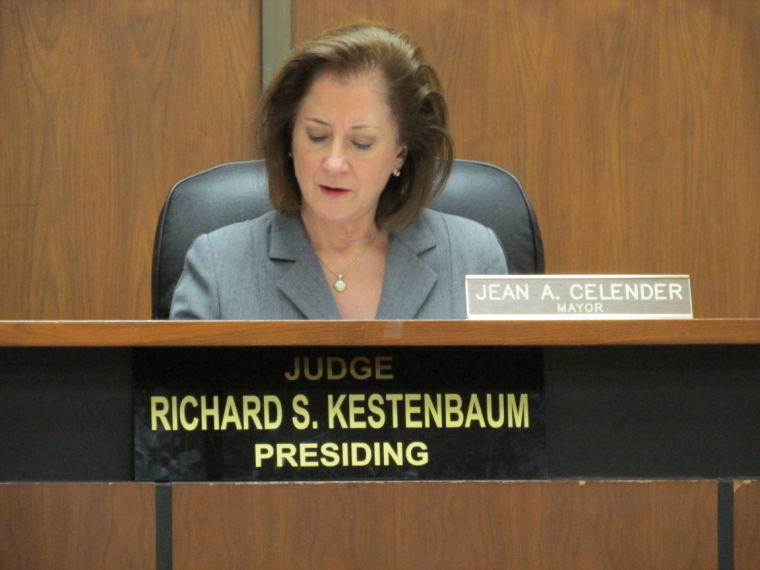Great Neck Plaza trustees are aiming to continue their efforts to become more environmentally conscious and potentially could receive a $100,000 Department of Environmental Conservation grant.
At last Wednesday’s Board of Trustees meeting, the board set a public hearing to consider monitoring the village’s electricity and natural gas use and publishing that information online.
Great Neck Plaza Mayor Jean Celender said the DEC offers “major incentives” for municipalities that adopt “high impact” initiatives.
The benchmarking of the village’s energy use, Celender said, is one of the “high impact items” identified by the DEC.
In 2008, the DEC created the Climate Smart Communities Program, an effort to persuade municipalities in the state to reduce greenhouse gas emissions and improve climate resilience.
According to the DEC’s website, municipalities make a public commitment to the program’s efforts through a pledge to the DEC.
Some 170 municipalities in the state have pledged to support the program, including the Town of North Hempstead in 2008 and Great Neck Plaza in 2012.
Celender said that if the village implements four “high impact” initiatives, it can potentially receive a $100,000 DEC grant.
If adopted, she said the village would be required to post data annually showing its electricity and natural gas use.
The public hearing is scheduled for the Dec. 21 meeting.
Also at the meeting, the board set a public hearing to consider a law that would allow for automated parking garages in the village.
Celender said she thinks the board should consider this technology since there are currently no provisions in the village code regarding automated parking garages and developers seeking to build would need to receive approval from the Board of Zoning Appeals.
She said that finding enough land to construct a parking lot to meet the village’s parking requirements for a new apartment building can be difficult, so automated parking garages could be beneficial to developers.
According to Daniel Patrascu of autoevolution.com, automated parking garages are effective in tackling congestion.
“This solution allows, for instance, for 20 cars to occupy the same footprint as four would have done in normal parking conditions,” Patrascu said.
Automated garages use computers, cameras and sensors to mechanically move a car and park it in an empty spot.
“I think we ought to examine how to modify our zoning code to allow for such a garage,” Celender said.
The public hearing is scheduled for the Dec. 21 meeting.
Great Neck Plaza considers monitoring energy use

By Joe Nikic


